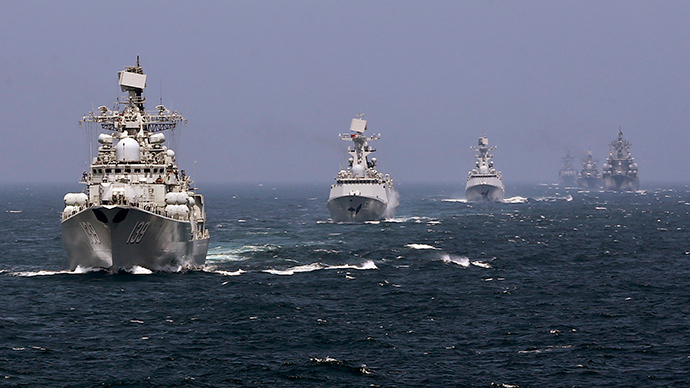Russia and the South China Sea: An Interview with Dr. Hanns Maull
In
Log in if you are already registered
How does Russia’s pivot to the East factor into the ongoing tensions in the South China Sea region? I have invited Dr. Hanns Maull, Visiting Professor at the Johns Hopkins University School of Advanced International Studies and Senior Distinguished Fellow at Stiftung Wissenschaft und Politik (German Institute for International and Security Affairs) to comment on recent developments in the South China Sea and what he foresees as Moscow’s role in the region in the near future.
What is your take on the current state of affairs in the South China Sea?
It seems to me that China is pursuing a carefully calculated strategy of ratcheting up its position in the South China Sea. She will advance, and give way when and where she encounters resistance that might endanger important objectives, such as the overall relationship with the United States. Fundamentally, Beijing’s foreign policy behavior in the South China Sea and the East China Sea (i.e. the Senkaku issue)  is no different from that of Russia in Ukraine: both have demonstrated a willingness to advance what they consider important national interests unilaterally and with the threat and use of force, even if they act against fundamental principles of the present international order. But Beijing does so much more intelligently than Moscow.
is no different from that of Russia in Ukraine: both have demonstrated a willingness to advance what they consider important national interests unilaterally and with the threat and use of force, even if they act against fundamental principles of the present international order. But Beijing does so much more intelligently than Moscow.
In May this year Russian Deputy Defense Minister Anatoly Antonov announced that Russia will participate in joint naval drills with its Asia-Pacific allies (most likely China, among others) in the South China Sea in May 2016. How do you see Russia's potential participation playing into the overall dynamics of the region?
There always has been a Russian naval presence in Asia-Pacific, which Moscow now intends to strengthen. But this will not have a major impact on the overall evolution of the situation. First, Russia’s naval capabilities will not be substantial enough to give it the status of a major power in the region at a par with China or Japan, let alone the U.S. Politically, Moscow has been close to Beijing already in the past on many regional issues, and recently has moved closer still. But I do not expect a formal alliance between the two, and even if that were to happen, this would not fundamentally change the geopolitical equation in the region.
Russia has been looking increasingly to the East amid deteriorating relations with the West. As of now, Russia's policy is to not get involved in the South China Sea disputes. Beijing and Moscow have been moving closer, but Russia also maintains close ties with other players in the region. If Russia is seriously pursuing a "pivot to Asia", do you see it taking on some sort of a role, and if so, what would that be?

Russia clearly has been engaged in its own pivot to Asia-Pacific for some time. But its principal role so far has been to signal its interest and commitment to be a player in the region. Its best opportunities to do so are the various multilateral frameworks of Asia-Pacific diplomacy. I would expect the same for the future: Moscow will support multilateralism in Asia-Pacific as long as it is present itself in them; and it will use those contexts to emphasize its involvement. It is conceivable that Moscow might try to mediate between other powers; in any case, my prediction would be that Moscow’s role will be modest but might actually be rather constructive.
Images courtesy of Stiftung Wissenschaft und Politik and Reuters




